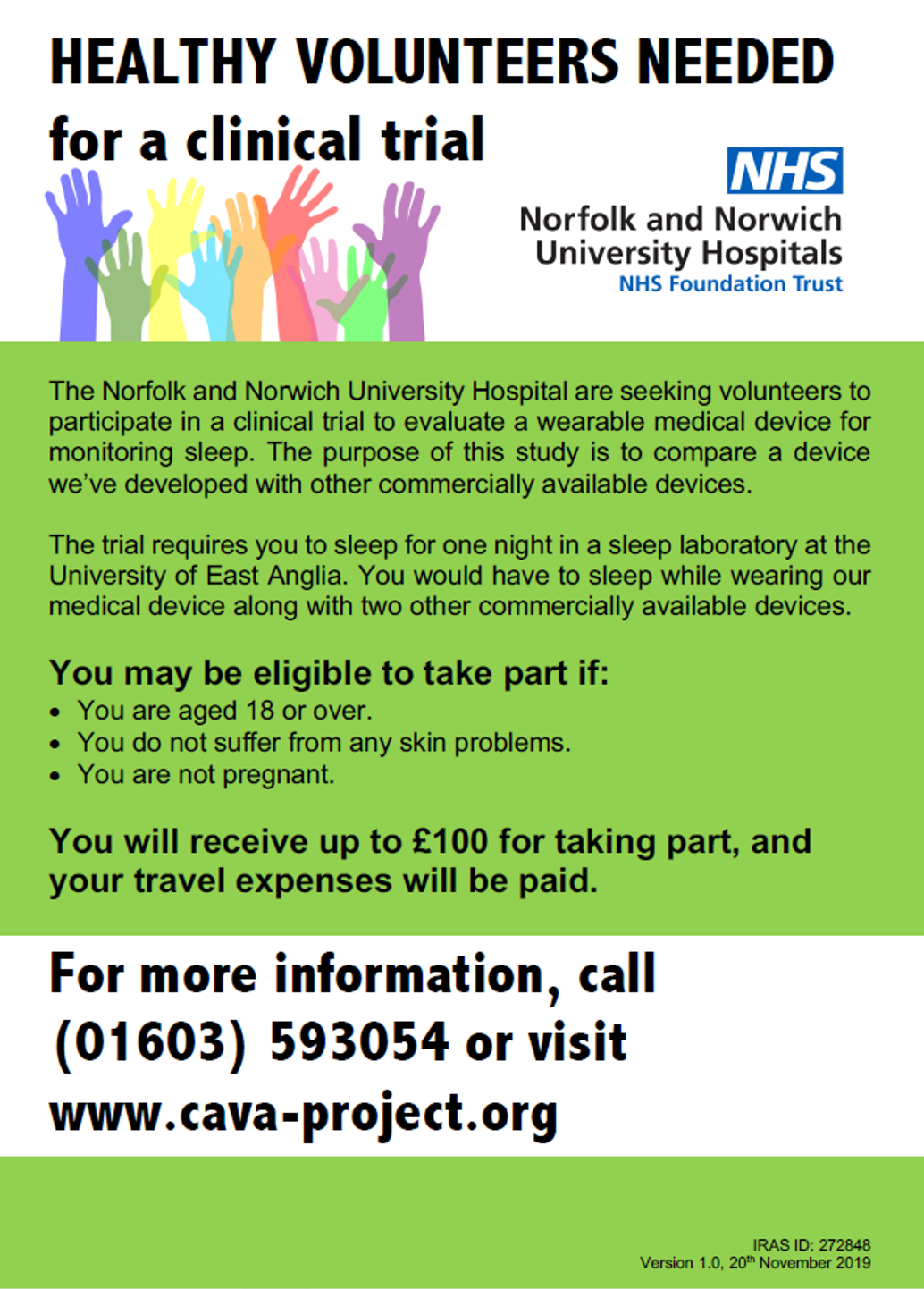
sCAVA - Sleep Assessment Using the CAVA Device
ABSTRACT
Early detection of sleep problems is imperative for prevention of this process, however it is hindered by current technology, where the gold standard is represented by a laborious and expensive method called polysomnography (PSG). Therefore, the need for innovative technologies allowing the reliable monitoring of sleep behaviour in the home-environment using non-invasive, user friendly and broadly accessible methods is immense. This study aims to assess the suitability of the CAVA device (Continuous Ambulatory Vestibular Assessment) that was originally developed by NNUH clinicians and UEA scientists to monitor dizziness, for the purpose of diagnosing sleep conditions. The CAVA device is designed to record head and eye-movements continuously over several weeks. Such signals are known to be useful for sleep state diagnosis, and our preliminary analyses show that the data collected by the CAVA device clearly delineate sleep and wake episodes so it is therefore plausible that the CAVA device can be used for home-based sleep monitoring. We term this new application sCAVA. The objective of our proposed study is to repurpose the CAVA device as a reliable and broadly accessible sleep monitoring tool by developing, testing and validating algorithms to interpret sCAVA data for sleep monitoring purposes.
Research Team
A/Prof Alpar Lazar
Principal Investigator (sCAVA Innovation Development Grant holder)
Phone: +44 (0)1603 592605
Email: a.lazar@uea.ac.uk
Mr John Phillips
Co-Investigator / Chief-Investigator
Email:j.phillips@uea.ac.uk
Tel: +44 (0)1603 593054
Prof Stephen Cox
Co-Investigator
Email:s.j.cox@uea.ac.uk
Tel: +44 (0)1603 593054
Visit the Cava-project site
If you would like more information about the CAVA sleep study, or would like to volunteer, please email sleep.brain@uea.ac.uk
Funding notes
UEA Innovation Development Fund to A/Prof Lazar (principal investigator)

)